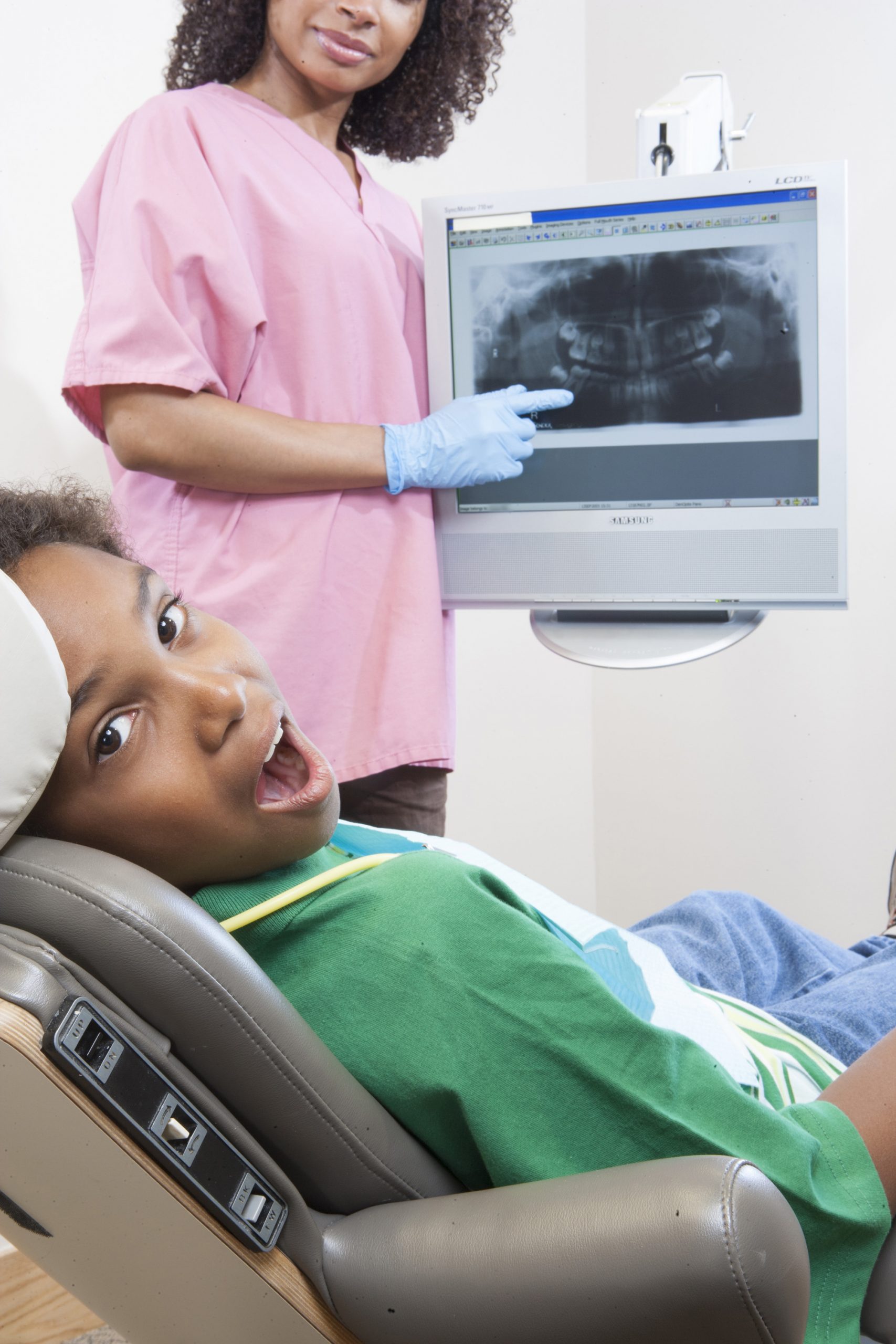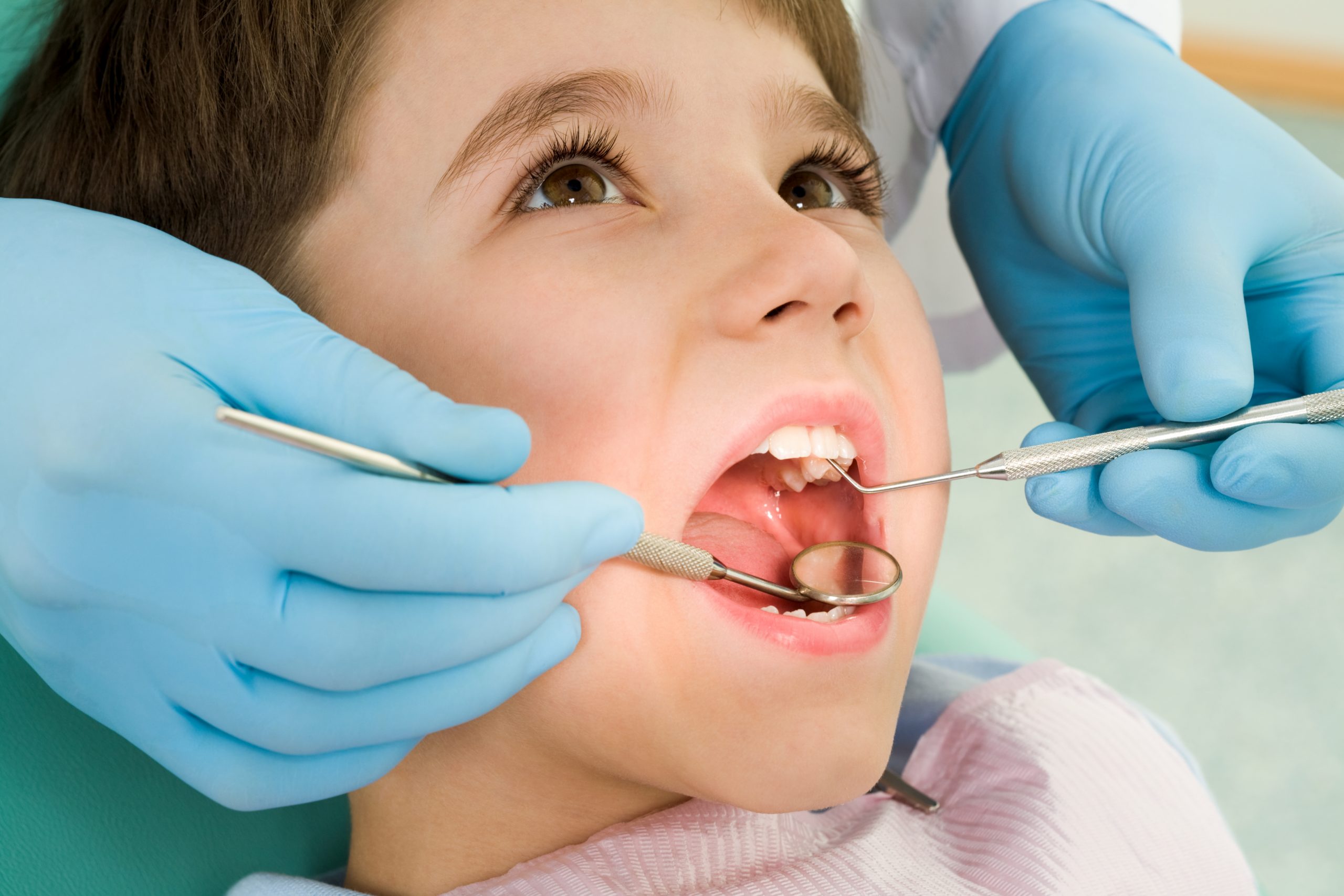Dental X-Rays for Children in Portland, Oregon
At Fox Kids Dentistry & Orthodontics, we provide dental care for children that makes them feel comfortable and fosters good oral hygiene habits. With our digital dental x-rays services at our Portland, Oregon, office, we’ll get a close look at your child’s teeth and their development.
Dental x-rays are most commonly taken at your child’s routine checkup visit, in conjunction with their cleaning, exam, and fluoride treatment.
What Are Dental X-Rays?
Digital dental x-rays are radiographs — detailed images of the teeth. With these high-resolution images, our dentists can zoom in and get a close look at specific spots on the teeth. This helps dentists gather a thorough understanding of a patient’s teeth and how they’re growing in.

Why Do Dental X-Rays Matter?
Basic dental exams help a dentist understand a person’s teeth, but there are things the human eye can miss. With digital x-rays, dentists can:
- See cavities hidden behind the teeth
- Check jaw alignment
- Understand infections and
- Evaluate growth
Different types of x-rays capture various areas of the mouth to cater to problem areas and check on development. X-ray technology makes dental appointments more comprehensive and helps our dentists do an even better job.
What Age Should Kids Get Dental X-Rays?
Generally, your child will get a dental x-ray based on their age and needs in conjunction with their regular, biannual appointment. For kids with cavities or tooth decay, they may need x-rays more regularly to keep their problems under control.
Below are three different types of dental x-rays we take that apply to separate age groups.
Occlusal Dental X-Rays – Often Taken Between the Ages of 3 and 5
From ages 3 to 5, dentists perform occlusal x-rays, which is typically the first x-ray a child will receive. Occlusal x-rays show the state of the front baby teeth and development of the permanent front teeth in the underlying bone. This type of x-ray is often more comfortable for younger kids, which makes the process smoother when they are needed.
Bitewing Dental X-Rays – Necessary Every 1-to-2 years
Bitewing x-rays occur every one to two years, and they require taking images of the back teeth. In pediatrics, it is most common to take these x-rays once per year due to frequent changes in tooth development and eruption of new teeth.
Since the back of the mouth is a common spot for cavities, bitewing x-rays are crucial for overall teeth health. Bitewings allow dentists to screen for cavities in between the back molars. We make sure to use tiny x-ray sensors specifically made for small mouths so your child will be at ease during the process.

Panoramic Dental X-Rays – Necessary Every 5 years
Panoramic dental x-rays, take an image of all the teeth, including teeth that have already grown into the mouth and teeth that are still developing underneath the surface.
This type of x-ray is necessary for kids who are growing their permanent teeth, and is most commonly taken around age 7-8. It helps keep track of overall development and helps to identify any orthodontic concerns in children who may need braces.
For children who don’t need braces, panoramic x-rays are still helpful in screening for any abnormalities, including extra teeth, missing teeth, or teeth that have a risk of becoming impacted. Dentists perform panoramic dental x-rays every 3-5 years from the first signs of permanent teeth.
Schedule Your Child’s Dental X-Ray Appointment in Portland, Oregon
At Fox Kids Dentistry, we encourage good dental hygiene while providing a safe and relaxing space for children at our pediatric dental office in downtown Portland, Oregon. We use the latest in x-ray technology to take crisp, clear images of your child’s teeth that help us understand their treatment needs.
When we use our x-ray machines, we make sure to educate our patients and their parents on the state of their teeth so families feel informed of the outcome of the x-rays.
Schedule an appointment for dental x-rays for children in Portland by calling 503-223-5039 or filling out our contact form.
